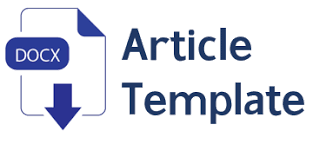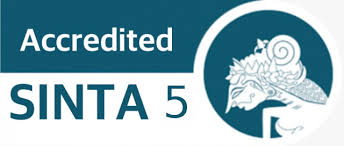Food Recipes And Early Childhood Nutrition Education
Main Article Content
Fadhilla Try Utamy
Early childhood represents a critical window for development, characterized by rapid physical growth and significant cognitive maturation. During this foundational period, optimal nutrition is not merely beneficial but essential. The quality and balance of nutrients provided can profoundly influence a child's developmental trajectory, impacting everything from physical stature to brain development and long-term health outcomes. This article explores the symbiotic relationship between appropriate food recipes and effective nutrition education for young children. It posits that providing a balanced and high-quality nutritional intake requires a dual approach: a practical understanding of food preparation suitable for this age group and a robust educational framework for parents and caregivers.
The paper delves into specific strategies to achieve this, including examples of balanced weekly meal plans and techniques for preparing and serving food in a manner that appeals to children. Furthermore, it underscores the indispensable role of nutrition education in empowering parents and educators to provide the best possible care. For education to be effective, it must be continuously updated to reflect the latest scientific findings and be seamlessly integrated into early childhood education programs. By treating nutrition education as a core component of a parent's role and a standard in early learning environments, we can establish a strong foundation for the younger generation. Ultimately, dedicated attention to both what children eat and what their caregivers know about nutrition is the most effective way to ensure a healthy and bright future.
Adriani, M., & Wirjatmadi, B. (2012). Peran Gizi dalam Siklus Kehidupan. Kencana Prenada Media Group.
Almatsier, S. (2010). Prinsip Dasar Ilmu Gizi. Gramedia Pustaka Utama.
Arisman, M. B. (2009). Gizi dalam Daur Kehidupan: Buku Ajar. EGC.
Festy W, P. (2018). Buku Ajar Gizi dan Diet. UM Surabaya Publishing.
Hidayat, A. A. (2008). Ilmu Kesehatan Anak untuk Pendidikan Kebidanan. Salemba Medika.
Kementerian Kesehatan RI. (2014). Pedoman Gizi Seimbang. Kementerian Kesehatan Republik Indonesia.
Natalia Veerman, S., & dkk. (2023). Pengembangan Kognitif Anak usia Dini. Get Press Indonesia.
Nuraini, H. (2007). Memilih dan Membuat Jajanan Anak yang Sehat dan Halal. Qultum Media.
Pujiarto, P. S., dkk. (2011). Pemberian Makan, Suplemen, dan Obat pada Anak. Ikatan Dokter Anak Indonesia.
Putri Yusniar, D. (2022). Kesehatan dan Gizi Anak Usia Dini. Bayfa Cendekia Indonesia.
Santrock, J. W. (2012). Perkembangan Masa Hidup (Life-Span Development). (Jilid 1, Edisi 13). Erlangga.
Soenardi, T. (2013). 100 Resep Makanan Sehat untuk Anak. Gramedia Pustaka Utama.
Susanto, A. (2021). Pendidikan Anak Usia Dini. Bumi Aksara.
Susianto. (2014). Gizi Seimbang untuk Tumbuh Kembang Anak. Kompas Media Nusantara.
World Health Organization. (2009). Infant and young child feeding: Model chapter for textbooks for medical students and allied health professionals. WHO Press.



